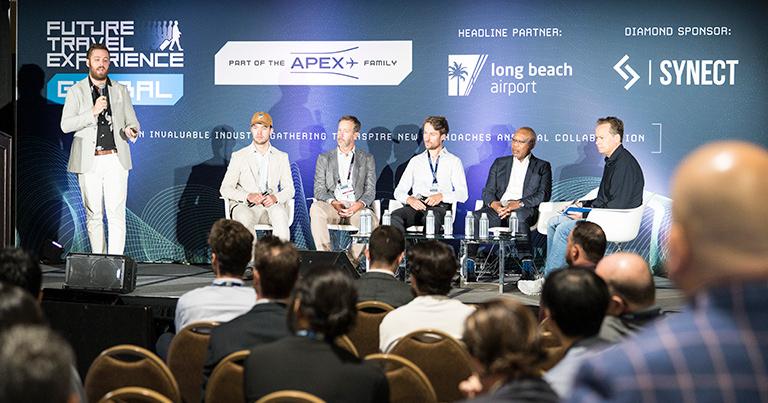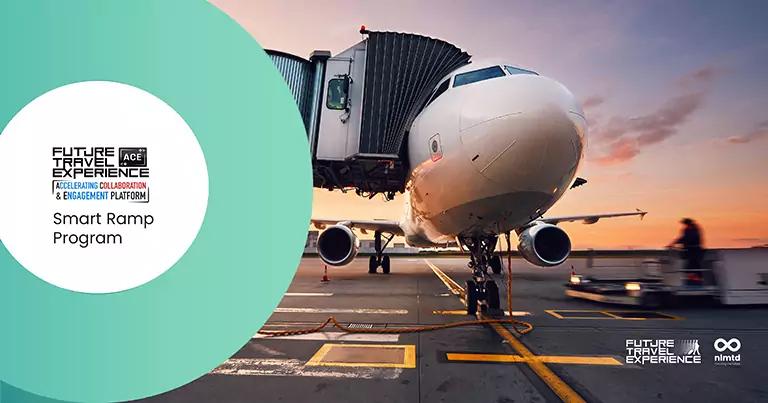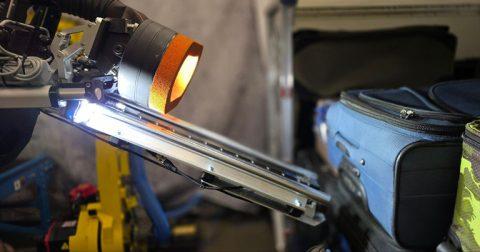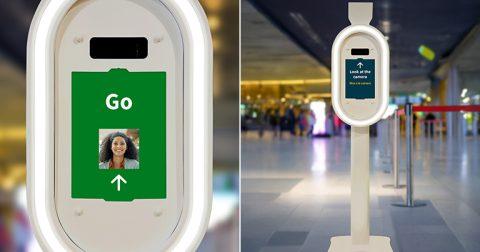Royal Schiphol Group has an ambitious vision for a fully autonomous airside by 2050. As a key part of these efforts, it is a member of the pioneering FTE Smart Ramp program, which has the ultimate goal that aircraft turnaround can be achieved autonomously and more efficiently. In this video interview, following his participation at the recent FTE Global event, Daan Boot, Strategy & Innovation Advisor, Royal Schiphol Group, discusses the tangible outcomes of its Proof of Concepts so far, its important collaboration with KLM, how artificial intelligence (AI) and computer vision are optimising ramp automation processes, and much more.
Pioneering ramp automation in partnership with KLM

In collaboration with KLM, Schiphol is currently working on two key components of the FTE Smart Ramp program: autonomous detection and removal of foreign object debris (FOD) and autonomous ground power unit (GPU) connection. Both are traditionally manual, labour-intensive processes, and automating them could bring significant efficiency and safety benefits.
“For FOD detection, we’ve already completed a trial with one innovative company, learning that autonomous robots can behave in unpredictable ways on the ramp,” Boot explains. “We’re now preparing for a new trial with another provider that will test both detection and removal capabilities – first in a controlled setting, and then at Schiphol later this year.”
The autonomous GPU connection project is equally promising. Boot describes it as “a complex but very exciting process” involving a robotic arm that must locate the aircraft’s power flap, open it carefully, lift a 50kg cable, connect it precisely, and close the flap – all without damaging the aircraft. Currently being developed in a lab setting, early trials have demonstrated the system’s ability to complete these tasks on a mock aircraft body.
Leveraging AI to improve turnaround efficiency
Beyond hardware, Schiphol is also investing in artificial intelligence (AI) and computer vision technologies to enhance real-time ramp operations. The airport has implemented a system called Deep Turnaround, which uses computer vision to track each step in the turnaround process.
“We share this data with our handlers and use it internally, for example in gate planning,” says Boot. “If a delay is predicted, we can proactively switch gates, allowing partners to rebook slots and avoid operational disruptions.”
This use of predictive analytics is already helping Schiphol improve gate utilisation, reduce delays, and optimise resource allocation – an important step toward fully autonomous ramp operations.
Collaboration as a catalyst for scalable innovation
A recurring theme in Boot’s insights was the critical importance of cross-industry collaboration – a foundational element of FTE Smart Ramp, which is the latest initiative as part of the FTE Accelerating Collaboration & Engagement (ACE) platform.
“Scaling these innovations is a big challenge, especially for technologies that don’t yet exist in the market,” Boot shares. “By working with others in the industry, we can share knowledge, reduce development costs for suppliers, and help create a viable market for these solutions.”
Schiphol is already applying lessons learned from other Smart Ramp partners. For example, All Nippon Airways’ work on autonomous cargo delivery has inspired similar efforts in Amsterdam, in collaboration with different suppliers. This culture of shared experimentation accelerates progress across the ecosystem.
Building towards a fully autonomous airside by 2050
Schiphol’s long-term vision is to achieve a fully autonomous airside by 2050 – an ambitious goal that Boot acknowledges can’t be achieved in isolation. “Smart Ramp helps distribute that challenge. We can learn from partners facing similar issues and avoid developing everything from scratch. It’s a collective effort that brings the whole industry forward.”
To support this goal, Schiphol is also a member of the FTE Digital, Innovation & Startup Hub, a platform that Boot describes as “crucial” for understanding industry challenges, connecting with peers, and discovering cutting-edge solutions from startups and tech providers.
Human-centric benefits: safety, sustainability and working conditions
While automation is often discussed in terms of efficiency, Boot emphasises its role in improving working conditions and sustainability – two key priorities for Schiphol. “Working on the ramp can be physically demanding and sometimes dangerous due to emissions and noise from aircraft engines,” he explains. “Autonomous technologies can reduce physical strain, limit exposure to harsh conditions, and ultimately create a safer, healthier work environment.”
Automation also contributes to operational reliability. By ensuring that critical tasks like GPU connection are always performed correctly and on time, delays can be minimised and aircraft emissions reduced – delivering both environmental and operational gains.
Looking ahead: excitement around emerging tech
When asked what technologies he’s most excited about, Boot points to the autonomous GPU connector and FOD detection systems, both of which are close to market-ready but still require further validation.
“These are novel solutions with real potential to transform how we manage the ramp. It’s exciting to be part of that journey and to see these ideas move from concept to reality.”

Experiencing innovation first-hand at FTE Global
Reflecting on his time at FTE Global, Boot shares how valuable the event has been for gaining exposure to the latest developments in airport technology. “I tried to attend as many conference sessions as possible. You hear directly from other airports, airlines, and tech providers – and then get to see the technology in action. That real-world experience goes beyond what you get from a sales pitch or a video.”
Royal Schiphol Group’s work through the FTE Smart Ramp program represents the cutting edge of ramp automation. By combining robotics, AI, and collaborative innovation, Schiphol is laying the groundwork for a safer, more efficient, and more sustainable airside – paving the way for the autonomous airport of the future.
Read the full FTE Global 2025 report >> Mark your diary for FTE Global 2026 – 8-10 September 2026, Dallas, Texas >>Groundbreaking FTE Smart Ramp program, accelerating automation and collaborative innovation
Smart Ramp is the latest initiative as part of the groundbreaking FTE Accelerating Collaboration & Engagement (ACE) platform launched in partnership with innovation consultancy nlmtd. ACE is dedicated to driving real collaborative action among stakeholders, facilitating fast progress and dynamic change in key areas of the aviation industry which are ripe for transformation. International Airlines Group, Miami International Airport, All Nippon Airways, Royal Schiphol Group, KLM Royal Dutch Airlines, and Metropolitan Washington Airports Authority are all members of what is a truly global collaborative innovation initiative.
The focus on Smart Ramp operations has the ultimate goal that aircraft turnaround can be achieved autonomously and more efficiently. A phased approach will assess which solutions truly work by each member testing new technologies, while incorporating requirements from the other participants. The program will support startups and introduce new suppliers not yet active in aviation, forging paths together on how to overcome hurdles while also exploring the potential for shared investments in the future. Results of the innovations will be shared with respective experts, industry bodies and regulators, meaning the outcomes can be used to create recommended practices and standards in the industry.
Rapid progress has been made since the launch of Smart Ramp and the innovation challenges already planned by members include some 20 projects across eight airports in 2025. These include Schiphol Group and KLM collaborating on autonomous FOD detection and removal for a seamless inbound aircraft flow, reducing wait times, lowering apron emissions, and improving worker health; and autonomously connecting aircraft to 400Hz power to reduce apron emissions and create a healthier work environment for staff.
Learn more about Smart Ramp and the FTE Accelerating Collaboration & Engagement (ACE) platform and how to participate >>









